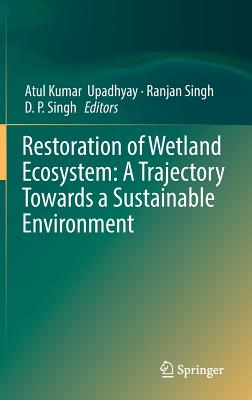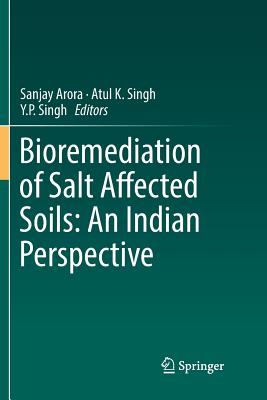Sustainable Plant Nutrition and Soil Carbon Sequestration
暫譯: 可持續植物營養與土壤碳封存
Edrisi, Sheikh Adil, Dubey, Pradeep Kumar, Rao, Ch Srinivasa
相關主題
商品描述
Terrestrial plant systems are an integral part of Earth's land resources. Resources are mutually connected via the nutrient exchange phenomena. Thus, plant nutrition is crucial in managing soil fertility and land productivity. Soil organic carbon is one of the critical indicators for assessing the viability of land, and hence soil carbon sequestration, which is a burgeoning issue regarding changing climatic conditions.
In this context, the present book provides an essential linkage between sustainable plant nutrition and soil carbon sequestration and their management strategies that lead to multidimensional benefits for environmental sustainability. The primary purpose of this book is to explore the nexus between carbon sequestration and plant growth, its role in maintaining ecosystem services, and modeling aspects of soil carbon and nutrient dynamics. Moreover, it aims to address the growing challenges of ecological perturbations, unraveling the potential of degraded lands for food, fuel, and nutritional security and accounting for meeting various UN SDGs.
商品描述(中文翻譯)
地面植物系統是地球陸地資源的重要組成部分。這些資源透過養分交換現象相互連結。因此,植物營養在管理土壤肥力和土地生產力方面至關重要。土壤有機碳是評估土地可行性的重要指標之一,因此土壤碳封存成為一個隨著氣候條件變化而日益受到關注的議題。
在這個背景下,本書提供了可持續植物營養與土壤碳封存之間的重要聯繫,以及導致環境可持續性多維效益的管理策略。本書的主要目的是探討碳封存與植物生長之間的聯繫、其在維持生態系統服務中的角色,以及土壤碳和養分動態的建模方面。此外,本書旨在應對生態擾動日益增長的挑戰,揭示退化土地在食品、燃料和營養安全方面的潛力,並考慮如何滿足各項聯合國可持續發展目標(UN SDGs)。
作者簡介
Dr. Sheikh Adil Edrisi is an Assistant Professor at the Thapar School of Liberal Arts and Sciences (TSLAS) at Thapar Institute of Engineering & Technology, Patiala, India. He earned his MPhil and PhD from Banaras Hindu University in Varanasi, India. He is researching to restore degraded lands for multipurpose environmental benefits, exploring the role of GIS to assess land productivity, bioremediation of contaminated and degraded lands for efficient bioenergy production, biodiversity conservation and restoration by developing an apposite policy framework for attaining key UN Sustainable Development Goals (UN SDGs). He has received the 2021 Early Career Start-up Research Grant from SERB, Govt. of India, the 2021 Young Scientist Medal from International Society of Environmental Botanists (ISEB), Lucknow, India, the 2019 Green Talents Award from the BMBF in Germany, and the NASI-Springer Award (2018) from NASI, India. Additionally, he holds editorial roles in reputed journals in the area of land degradation, restoration, and sustainable production, such as Energy, Ecology and Environment, Anthropocene Science (Springer), Restoration Ecology, Land Degradation and Development (Wiley), and PLoS-One (PLoS). Dr. Adil is also the 'initial member' of Global Soil Biodiversity Initiatives and is currently an active IUCN-CEM, CEESP, and CEC commission member to resolve pressing global challenges of land restoration, bioenergy production, and sustainable development.
Dr. Pradeep Kumar Dubey is a Program Manager for the Sustainable Landscape and Restoration program at the World Resource Institute, India (WRI India). His primary area of expertise lies in agroecosystem management following a bottom-up approach, and he currently focuses on landscape restoration in Maharashtra, India. Pradeep holds an MSc and PhD in Environmental Science from Banaras Hindu University, Varanasi, India. He has undertaken substantial agricultural surveys and field-level experimental validation, proposing various ecological solutions for agri-environmental sustainability land-soil management within the Vindhyan dryland and Gangetic Plain in eastern UP, India. Dr. Dubey is selected as an IPBES fellow for Nexus assessment, a Fellow of the Society for Plant Research in India, and a recipient of the IUCN CEM Agroecosystems Special Recognition Award and Young Scientists Award from the Society for Science of Climate Change and Environmental Sustainability. He serves as a member of IUCN commissions (CEM, CEC, CEESP), the Global Land Program (GLP), and the Global Soil Biodiversity Initiative (GSBI). He is invited as a resource person, expert, and speaker in various state, national, and international forums. He has published research, reviews, opinions, editorial pieces, book chapters, and a lead-authored book. He has been actively involved in editorial and reviewer roles for esteemed international journals.
Dr. Cherukumalli Srinivasa Rao acquired his Ph.D. in Soil Science and Agricultural Chemistry from IARI, New Delhi, and Post-Doctoral (Fellow) from Tel-Aviv University, Tel-Aviv, Israel. Dr. Rao worked in the ICAR system in different capacities, from Scientist to Director. Currently, he is serving as Director of ICAR-National Academy of Agricultural Research Management, Hyderabad, since 2017. He also served the International Crop Research Institute for Semi-Arid Tropics (ICRISAT), Patancheru, Hyderabad, for three years. He has been the recipient of 40 national and international awards, including the Rafi Ahmed Kidwai Award for Outstanding Research in Agricultural Sciences, 2019. He contributed to the UNFCCC global climate change negotiator in the agriculture sector from the Government of India. Dr. Rao is a Fellow of the Indian National Science Academy, National Academy of Sciences, and National Academy of Agricultural Sciences, and a Member of various National and International Committees globally. Dr. Rao specializes in Climate Change, Soil Carbon Sequestration, Carbon Balance, Dryland Production Systems, and Climate Policy. Dr. Rao is credited with 340 Research Papers, 50 Books authored/edited, 14 copyrights, and 21 Policy/Strategy/Status Papers. He visited more than 15 countries for scientific meetings. His Google Scholar total citations = 9151 and h-index = 46.
Dr. Himlal Baral is a Senior Forest and Landscape Restoration (FLR) scientist with CIFOR-ICRAF's Climate Change, Energy, and Low Carbon Development team. Based in Bali, Indonesia, Dr. Baral coordinates CIFOR's work on FLR, planted forests and bioenergy in Asia and the Pacific, specifically 1) promoting FLR for multiple ecosystem goods and services (EGS); 2) quantifying and valuing EGS under different landscape management scenarios; 3) investigating and developing locally appropriate landscape restoration models; and 4) contributing to land-resource planning for food, biomaterial, and energy security. Prior to joining CIFOR-ICRAF, he worked in the forestry and natural resources management field for over 25 years in both the private and public sectors in Asia and the Pacific. Dr. Baral has a PhD in Land and Environment and two Master's degrees in Forest Science and Social Science. Dr. Baral also serves as a Fellow of the Melbourne School of Land and Environment and the Global Evergreening Alliance and leads IUCN-CEM's specialist group on forest ecosystems.
Dr. Rajiv Kumar Chaturvedi is currently an Associate Professor at BITS Pilani, Goa campus. He obtained his PhD from the Indian Institute of Science (IISc) in Ecology from the Centre for Ecological Sciences and a Masters in Geography from the Delhi School of Economics, Delhi University, New Delhi, India. Dr. Chaturvedi has been a National Environmental Sciences Fellow at IISc and has contributed to more than 40 peer-reviewed articles, as well as two books on environment and climate change. Dr. Chaturvedi has worked extensively with communities, Government officials, NGOs, and UN organizations. Dr. Chaturvedi is currently the co-chair of IUCN's Forest Ecosystem's specialist group. He is currently involved with India's national greenhouse gas inventory programand is listed as a UN expert on GHG inventory. He has been a lead author for the regional assessment reports of the UNEP (United Nations Environment Programme) and IPBES (Intergovernmental Panel on Biodiversity and Ecosystem Services).
Dr. P. C. Abhilash is a senior Assistant Professor of Sustainability Science at the Institute of Environment and Sustainable Development (IESD) at Banaras Hindu University in Varanasi, India, and Lead of the Agroecosystem Specialist Group of the IUCN-Commission on Ecosystem Management. He is a fellow of the National Academy of Agricultural Sciences, India. His research interest lies in sustainable biomass production from marginal and degraded lands for supporting a biobased economy, restoring degraded lands for regaining ecosystem services, land system management, sustainable utilization of agrobiodiversity, nature-based solutions, ecosystem-based adaptations for climate-resilient and planet-healthy food production, and sustainable agriscape management for food and nutritional security. He is particularly interested in sustainability analysis, system sustainability, sustainability indicators, circular economy principles, policy realignment, and the localization of UN SDGs for sustainable development. He is on the editorial board of prestigious journals in Ecology/Environment/Sustainability from leading international publishers and also serves as a subject expert for UN-IPBES, IRP- UNEP, UNDP-BES Network, IPCC, UNCCD, APN, GLP, and IUCN Commissions (CEM, CEC, CEESP, and SSC) for fostering global sustainability.
作者簡介(中文翻譯)
Dr. Sheikh Adil Edrisi 是印度帕提亞拉的 Thapar 工程與技術學院 (Thapar Institute of Engineering & Technology) 的 Thapar 自然科學與人文學院 (Thapar School of Liberal Arts and Sciences, TSLAS) 的助理教授。他在印度瓦拉納西的班納拉斯印度大學 (Banaras Hindu University) 獲得了碩士及博士學位。他的研究專注於恢復退化土地以獲得多重環境效益,探索地理資訊系統 (GIS) 在評估土地生產力中的角色,對受污染和退化土地進行生物修復以提高生物能源生產效率,並通過制定適當的政策框架來促進生物多樣性保護和恢復,以實現聯合國可持續發展目標 (UN Sustainable Development Goals, UN SDGs)。他獲得了印度政府 SERB 的 2021 年早期職業啟動研究獎金、來自印度勒克瑙的國際環境植物學會 (ISEB) 的 2021 年青年科學家獎、德國 BMBF 的 2019 年綠色人才獎,以及來自印度 NASI 的 NASI-Springer 獎 (2018)。此外,他在土地退化、恢復和可持續生產領域的知名期刊中擔任編輯角色,如 Energy, Ecology and Environment、Anthropocene Science (Springer)、Restoration Ecology、Land Degradation and Development (Wiley) 和 PLoS-One (PLoS)。Dr. Adil 也是全球土壤生物多樣性倡議的「初始成員」,目前是 IUCN-CEM、CEESP 和 CEC 委員會的活躍成員,致力於解決土地恢復、生物能源生產和可持續發展的緊迫全球挑戰。
Dr. Pradeep Kumar Dubey 是印度世界資源研究所 (World Resource Institute, WRI India) 可持續景觀與恢復計畫的計畫經理。他的主要專業領域是基於自下而上的農業生態系統管理,目前專注於印度馬哈拉施特拉邦的景觀恢復。Pradeep 擁有來自班納拉斯印度大學的環境科學碩士和博士學位。他進行了大量的農業調查和現場實驗驗證,提出了多種生態解決方案,以促進印度東部烏塔爾普拉德什邦的 Vindhyan 乾燥地區和恒河平原的農業環境可持續土地-土壤管理。Dr. Dubey 被選為 IPBES 的 Nexus 評估研究員,是印度植物研究學會的成員,並獲得了 IUCN CEM 農業生態系統特別表彰獎和氣候變化與環境可持續科學學會的青年科學家獎。他是 IUCN 委員會 (CEM、CEC、CEESP)、全球土地計畫 (GLP) 和全球土壤生物多樣性倡議 (GSBI) 的成員。他受邀在各種州、國家和國際論壇中擔任資源人員、專家和演講者。他發表了研究、評論、意見、編輯文章、書籍章節以及一本主編書籍。他在多個知名國際期刊中積極參與編輯和審稿工作。
Dr. Cherukumalli Srinivasa Rao 獲得了新德里的印度農業研究所 (IARI) 土壤科學與農業化學博士學位,並在以色列特拉維夫大學 (Tel-Aviv University) 獲得博士後研究員資格。Dr. Rao 在 ICAR 系統中擔任過不同職位,從科學家到主任。目前,他自 2017 年以來擔任 ICAR-國家農業研究管理學院 (ICAR-National Academy of Agricultural Research Management) 的主任。他還在印度海德拉巴的國際半乾旱熱帶作物研究所 (ICRISAT) 工作了三年。他獲得了 40 項國內外獎項,包括 2019 年的 Rafi Ahmed Kidwai 農業科學傑出研究獎。他代表印度政府參與了聯合國氣候變化框架公約 (UNFCCC) 農業部門的全球氣候變化談判。Dr. Rao 是印度國家科學院、國家科學院和國家農業科學院的院士,並且是全球各種國家和國際委員會的成員。Dr. Rao 專注於氣候變化、土壤碳封存、碳平衡、乾燥地生產系統和氣候政策。他擁有 340 篇研究論文、50 本著作/編輯的書籍、14 項版權和 21 篇政策/策略/狀態報告。他曾訪問超過 15 個國家參加科學會議。他的 Google Scholar 總引用次數為 9151,h-index 為 46。
Dr. Himlal Baral 是 CIFOR-ICRAF 氣候變化、能源和低碳發展團隊的高級森林與景觀恢復 (FLR) 科學家。Dr. Baral 目前在印尼巴厘島工作,協調 CIFOR 在亞洲和太平洋地區的 FLR、植樹造林和生物能源工作,具體包括 1) 促進多重生態系統商品和服務 (EGS) 的 FLR;2) 在不同的景觀管理情境下量化和評估 EGS;3) 研究和開發當地適宜的景觀恢復模型;4) 為食品、生物材料和能源安全的土地資源規劃做出貢獻。在加入 CIFOR-ICRAF 之前,他在亞洲和太平洋的私營和公共部門從事林業和自然資源管理工作超過 25 年。Dr. Baral 擁有土地與環境的博士學位,以及森林科學和社會科學的兩個碩士學位。他還擔任墨爾本土地與環境學院和全球常綠聯盟的院士,並領導 IUCN-CEM 的森林生態系統專家小組。
Dr. Rajiv Kumar Chaturvedi 目前是 BITS Pilani 的果阿校區的副教授。他在印度科學研究所 (Indian Institute of Science, IISc) 獲得生態學博士學位,並在德里大學的德里經濟學院獲得地理碩士學位。Dr. Chaturvedi 曾是 IISc 的國家環境科學研究員,並貢獻了超過 40 篇同行評審的文章,以及兩本有關環境和氣候變化的書籍。Dr. Chaturvedi 與社區、政府官員、非政府組織和聯合國組織有廣泛的合作。他目前是 IUCN 森林生態系統專家小組的共同主席,並參與印度的國家溫室氣體清單計畫,並被列為聯合國溫室氣體清單的專家。他曾擔任聯合國環境規劃署 (UNEP) 和 IPBES (政府間生物多樣性與生態系統服務專門委員會) 的區域評估報告的主編。
Dr. P. C. Abhilash 是印度班納拉斯印度大學 (Banaras Hindu University) 環境與可持續發展研究所 (Institute of Environment and Sustainable Development, IESD) 的可持續科學高級助理教授,並擔任 IUCN 生態系統管理委員會的農業生態系統專家小組的負責人。他是印度國家農業科學院的院士。他的研究興趣在於從邊際和退化土地中可持續生產生物質,以支持基於生物的經濟,恢復退化土地以恢復生態系統服務,土地系統管理,農業生物多樣性的可持續利用,自然基礎解決方案,氣候韌性和健康食品生產的生態系統基礎適應,以及可持續農業景觀管理以確保食品和營養安全。他特別關注可持續性分析、系統可持續性、可持續性指標、循環經濟原則、政策調整以及聯合國可持續發展目標的本地化。他在國際知名出版商的生態/環境/可持續性期刊的編輯委員會中任職,並擔任聯合國 IPBES、IRP-UNEP、UNDP-BES 網絡、IPCC、UNCCD、APN、GLP 和 IUCN 委員會 (CEM、CEC、CEESP 和 SSC) 的主題專家,以促進全球可持續性。





















